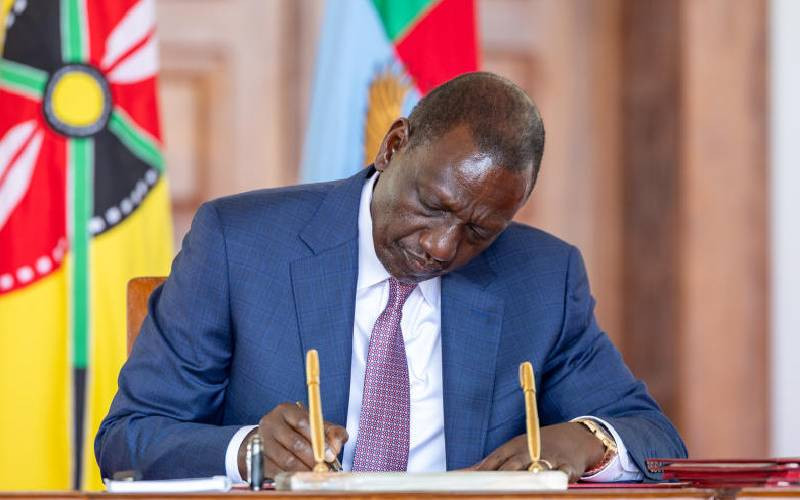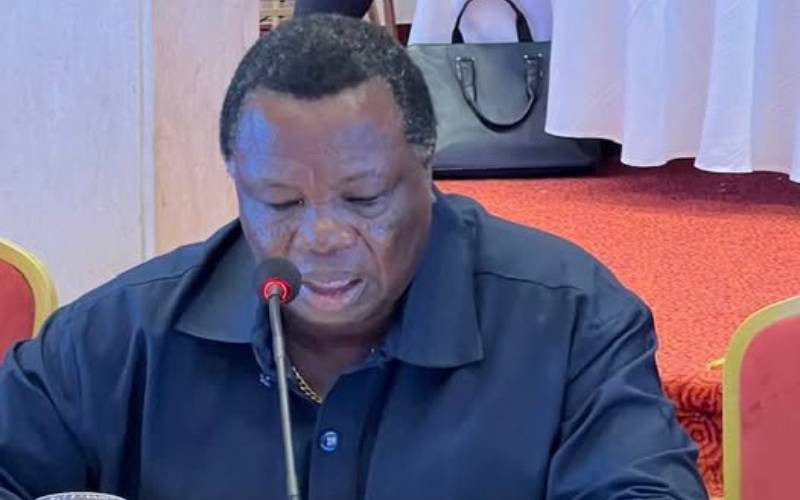The implementation of the Finance Act, 2025, may not be a walk in the park after a case filed seeking to block it.
The case filed yesterday is seeking conservatory orders, arguing that the finance law, which President William Ruto signed on June 26, will overburden Kenyans.
The petitioner, Godfrey Musania, cites the removal of Value Added Tax (VAT) exemptions on essential products such as mosquito repellents and construction materials.
“If the conservatory orders sought are not granted, millions of Kenyans stand to suffer irreversible harm, including cost of living, health risks and arbitrary deprivation of property,” says the suit papers.
“The implementation of the impugned provisions commenced on July 1, 2025, and unless restrained, will continue to cause irreparable harm to the public, including increased cost of living, denial of access to health products and violation of economic and proprietary rights.”
Treasury Cabinet Secretary John Mbadi, Attorney General and the Kenya Revenue Authority have been named as the respondents.
The petition notes that on April 30, Mbadi presented the Bill to the National Assembly proposing amendments to several revenue laws, including the Income Tax Act, VAT, the Excise Duty Act and the Stamp Duty Act.
The suit states that the changes were passed on June 26 and became law five days later.
Nevertheless, the case argues that the National Assembly failed to conduct meaningful public participation, citing Sections 62 and 65 of the Act as some of the clauses that were inserted without involving the public.
Section 65 meant that products such as tiles, sinks, wash basins, iron and non-allow steel would fetch more taxes, according to the petition.
“Lack of public participation violates the Constitution and renders the impugned provisions of the Finance Act, 2025, constitutionally invalid for failure to comply with the procedural requirements established in law,” says the suit.
The petition argues that by deleting VAT exemption for mosquito repellents, the government was reversing the gains made against malaria.
“Given the known mortality and morbidity associated with malaria, the effect of this amendment is to threaten the lives of millions of Kenyans, particularly those in low-income households and malaria-endemic regions. This constitutes an indirect yet unjustifiable limitation to the right to life under Article 26(1), and (2) of the Constitution.”
Musania requests Justice Lawrence Mugambi to determine that the enactment and implementation of the Act violates the Constitution. He wants the court to declare that all the sections introduced at the committee stage without public participation are unconstitutional.
Stay informed. Subscribe to our newsletter
He is also seeking an order to suspend implementation of the contested sections of the law, and to have Mbadi, AG and KRA shoulder the cost of the case.

























